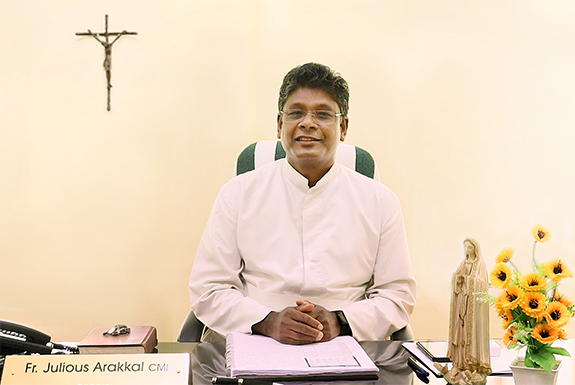Health is the concern of the Parish- the stable community of individuals. The parish priest is entrusted with the holistic care of his people who are entrusted to his care. This care should be inclusive, encompassing all the people who reside in his territory. Holistic care would mean the Spiritual, Psychological, Emotional, Physical, and Social well-being of an individual. It's not just freedom from the danger of disease and untimely death. Parish-based care is to be coordinated, integrated care provided in a range of community settings, like home-based care, healthcare clinics, primary health centers, hospitals, and so on. It is carried out through a person or people-centered approach.
Catholic parishes have a dual identity. As a part of the universal church they act as an extension of the healing ministry of Christ; as a part of the community, they provide healthcare services to many. Our current environment offers them a singular moment of opportunity. At this significant juncture when the contagion is spreading like wildfire and taking a heavy toll of precious human lives , parish-based health care can play a crucial role. Pope Francis says the shepherd should have the smell of his sheep. In other words, the parish priest or pastor should know the needs of the people entrusted to his care. During this time of the pandemic, parishes can answer the unmet needs of the most vulnerable- the people who remain in the fringes of the society. The parishes can accomplish this twofold mission by partnering with working professionals and volunteer groups.
The primary function of the parish with regard to the life of individuals is to foster spiritual health through the breaking of word and bread along with the administering of the sacraments. Through these activities, the Church empowers individuals to face life and death grounded in faith. But this is not the parish's only role. Christ taught us to be the caretakers of this creation, more especially our brothers and sisters. Christ identifies himself with those in need and predicates our salvation on our response to them. Parish-based health programmes can provide the vehicle for the Church to demonstrate how to look after each other, extending that concern beyond their own families, and for parishes to demonstrate their commitment to the society. The parishes need to collaborate with working health professionals within the area regardless of their religion, caste, creed, or colour. Like-mindedness and shared interest in the welfare of our brethren should be the only criterion to select these professionals. In this way, we will answer the complexities of human needs- Socio-Psycho supports. Trained health caregivers bring in professional skills generally not possessed by a parish volunteer team. The team needs knowledge and techniques for caring for the frail but often doesn't have them. Parishes linked with formal providers can function as extended hands of information and referring agencies. Parishes also need to promote partnerships at all levels because the families are the smallest unit of church.
The secondary function of the parish is the building of community and motivating persons to show concern for each other. These partnerships and relationships fostered and seen by the people not only promote compassionate services to the people most in need over subsequent decades, but also reveal the potential of lay leaders within parishes to carry out the healing mission of Jesus. All the baptized Catholics have the mandate of Christ to assist each other, to become the caretaker of “my little ones”.We are guardians of each other. I firmly believe we are being called, as healthcare workers, to share the responsibilities and to support the Anavims of YaHWaH on the face of the earth. Seeing our works of charity, may the people entrusted to our care realize God’s name is Mercy.
Stay safe; Save lives.
Fr Julious Arakkal CMI
Secretary, CBCI Office for Health Care, New Delhi
Director, Amala Institute of Medical Sciences, Thrissur- Kerala
